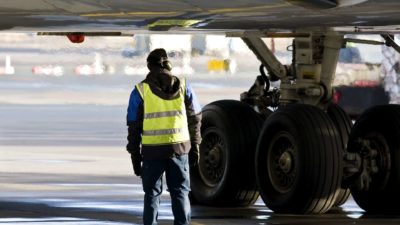The Qantas Airways Limited (ASX: QAN) share price has jumped higher since the start of 2023. It has risen by around 8% this year and it's up 40% over the last six months.
To put that into perspective, the S&P/ASX 200 Index (ASX: XJO) has only gone up by 10% in the last six months. That's still a good effort.
I think it's understandable why Qantas shares are performing so well.
The company's updates have been full of promising updates and financial guidance.
It told investors in November what it was expecting in the first half of FY23. Let's remind ourselves what was in that update.
Profit upgrade
The ASX airline share told investors that underlying profit before tax is expected to be between $1.35 billion to $1.45 billion. This will help reduce net debt to a range of $2.3 billion to $2.5 billion.
Qantas put this improved performance down to customers continuing to put a high priority on travel ahead of other spending categories. The airline said there are signs that limits on international capacity are driving more domestic leisure demand, benefiting Australian tourism.
However, Qantas did say that fuel costs would remain significantly elevated compared to FY19 and are expected to reach $5 billion in FY23. That's despite international capacity being at around 30% less than pre-COVID levels.
Debt is falling. It'll be around $900 million better than expected in the most recent update. That's due to an acceleration of revenue inflows as customers book flights on Qantas, Jetstar, and partner airlines in the second half and beyond, as well as the deferral of approximately $200 million of capital expenditure to the second half.
Qantas said it's adding back capacity as quickly as possible in the second half of the year while maintaining operational reliability. However, it did say that it was the most on-time domestic airline in October.
Is it too late to buy Qantas shares?
Investors are able to buy shares whenever they want to, the key question is whether they are good value today.
Commsec numbers suggest the airline could generate 92 cents of earnings per share (EPS) in the 2023 financial year and 97 cents of EPS in FY25. That puts the company at 7x FY23's estimated earnings and around 6.5x FY25's estimated earnings.
If earnings recover that strongly to FY25, the projections suggest the business could pay an annual dividend per share of 21 cents. That could be a dividend yield of 3.25%, excluding the effect of franking credits.
Qantas shares could still be quite cheap if its earnings stabilise at the projected level, though it's not as cheap as it was a few months ago. I believe the business still has further to run over the next year, particularly if the fuel costs keep dropping.
Looking at the recommendations covered by Commsec, there are 12 buy ratings, two hold ratings, and no sell ratings. Goldman Sachs currently has a buy rating, with a target price of $8.20. That implies a rise of around 30% on Tuesday's closing price of $6.41 over the next year.








